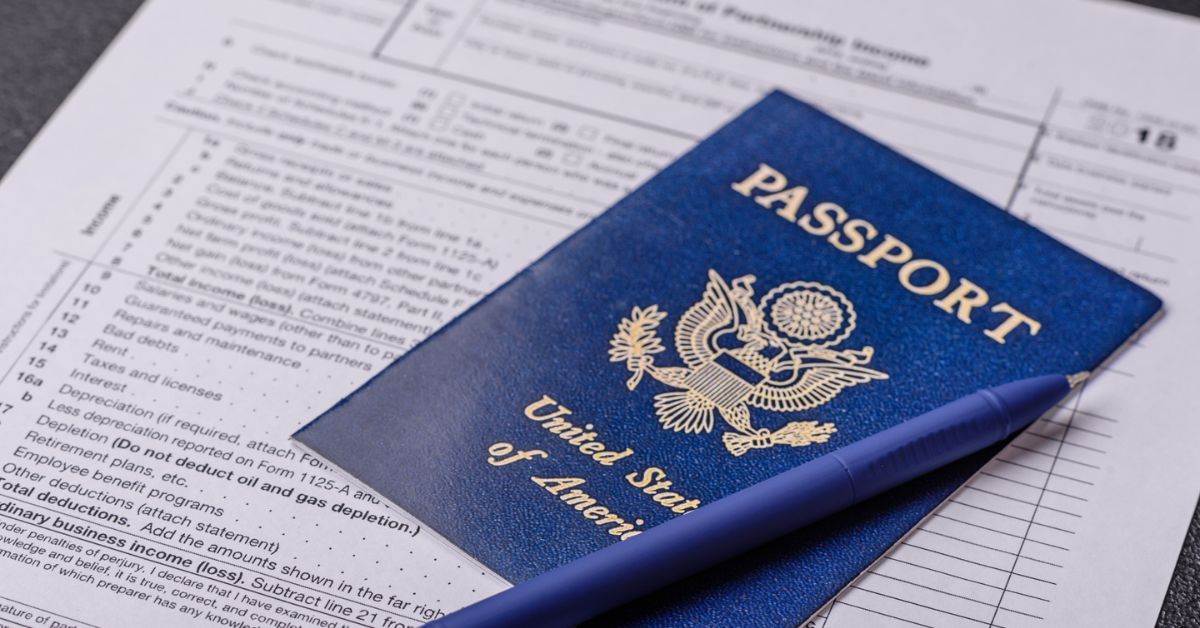Traveling internationally is an exciting experience, but it can also bring unexpected challenges. Many travelers get travel insurance to cover things like medical emergencies, trip cancellations, and lost luggage. But does travel insurance cover passport issues? The answer is yes, though coverage varies depending on the provider and specific policy. Some policies cover lost, stolen, or damaged passports, but it’s important to know what’s covered before you go.
In this article, we’ll explore the types of passport-related problems that travel insurance may cover, from reimbursement for replacement costs to assistance with emergency travel documents. We’ll cover how travel insurance can help you handle passport issues and what steps to take if you’re overseas and face this problem. Let’s dive in.
Travel Insurance: What It Typically Covers
Travel insurance is designed to protect travelers from various unforeseen situations. Most policies cover medical expenses, trip cancellations, and lost belongings. However, passport issues fall under a special category, often with limited coverage.
Insurance providers have different policies regarding passport issues. Many cover stolen passports, while lost or damaged passports might receive limited support. Passport-related issues can lead to additional travel expenses, significantly impacting your trip. Therefore, reading the fine print is essential before purchasing any travel insurance.
Having a clear understanding of what’s included helps travelers avoid unexpected costs. Knowing what’s covered can help you avoid passport-related problems. This awareness ensures your chosen insurance aligns with your travel needs.
Does Travel Insurance Cover Passport Issues?
Many travel insurance policies cover certain passport issues, but the extent varies widely. Most providers offer specific coverage for stolen passports. If a passport is lost or damaged, some policies provide limited support.
This usually includes reimbursement for fees associated with a replacement passport. Emergency travel document costs may also be covered in specific cases. However, each policy has its conditions and exclusions. It’s important to verify your insurance plan’s details before purchasing.
Situations Covered by Travel Insurance for Passport Issues
Depending on the policy, travel insurance may cover a variety of passport-related issues. Common situations include lost, stolen, or damaged passports.
- Lost Passport: Some policies reimburse fees for obtaining a replacement or emergency travel document. This helps cover unexpected costs during your trip.
- Stolen Passport: If a passport is stolen, policies generally cover expenses like police report fees and replacement passport costs. This helps travelers resume their plans promptly.
- Damaged Passport: Damage coverage varies, and it is sometimes only applicable in emergencies like accidents or natural disasters.
Expenses Typically Covered for Passport Issues
Travel insurance often covers specific expenses related to passport issues. Replacement fees for a new passport may be reimbursed.
- Travel Costs: Insurance may cover travel expenses to the nearest embassy or consulate, including transportation costs for replacements.
- Accommodation: If passport issues delay your trip, insurance might cover extra accommodation costs. This helps reduce unexpected financial burdens.
- Rebooking Fees: Some policies include coverage for rebooking fees if travel plans are interrupted.
What Isn’t Covered by Travel Insurance for Passport Issues
Not all passport-related expenses are covered by travel insurance. Policies usually exclude costs arising from negligence or misuse.
- Premium Services: Expedited or premium processing fees for passport replacements are often not covered. These costs are usually the traveler’s responsibility.
- Expired Passports: Insurance does not cover costs if your passport was expired at the time of loss or damage.
- Personal Preferences: Optional expenses, like choosing a specific embassy, are generally excluded. Understanding these limitations before traveling is essential.
Steps to Take If You Lose Your Passport While Traveling
Losing your passport can be stressful, but taking prompt action helps. Such as:
Report the Loss
Losing your passport can be stressful, but taking prompt action is essential. Start by reporting the loss to local authorities immediately. Visit a nearby police station or contact local law enforcement. Provide them with your passport details, including the number and any relevant identification. This step is vital for documentation and can help protect against identity theft.
File a Police Report
If your passport was stolen, it’s crucial to file a police report. This document serves as official proof of theft, which is necessary for future claims with your travel insurance. When filing, provide as much detail as possible, such as the circumstances of the theft and any witnesses. Make sure to request a copy of the report, as you will need it for your insurance claim and when applying for a replacement passport.
Locate the Nearest Embassy or Consulate
Next, locate the nearest embassy or consulate of your home country for assistance. Use online resources or contact your travel insurance provider for the closest location. The embassy can help you obtain a replacement passport or emergency travel document. They will also inform you about the required documents, fees, and processing times, which can vary based on location.
Notify Your Travel Insurance Provider
Finally, notify your travel insurance provider about the loss or theft of your passport. Contact them as soon as possible to report the incident and start the claims process. Provide all necessary documentation, such as the police report, details about the loss, and receipts for expenses. This information will help expedite your claim and ensure you receive reimbursement for covered expenses related to the loss of your passport.
Read More: Do I Need Travel Insurance For Thailand?
Final Words
Finally, all travelers need to understand travel insurance coverage for passport issues. While many policies offer some protection, limitations exist. Always read the policy details carefully before purchasing.
If you encounter passport problems abroad, take immediate action to mitigate the situation. It is easy to travel stress-free by knowing your coverage and what steps to take. Being prepared ensures a smoother experience, allowing you to focus on your adventure.


